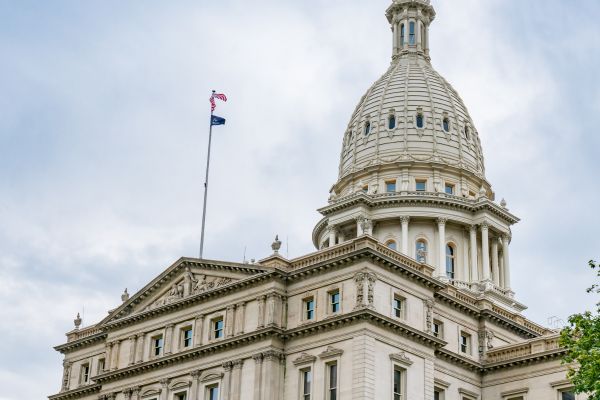
- Details
- By Neely Bardwell
All Michigan public school districts and charter schools will be required to collect tribal affiliation data from students and staff, starting in the 2024 - 2025 academic year. Three million dollars is being set aside to make sure that schools are equipped to do this.
This data is important to the twelve federally recognized tribes in Michigan because it will allow them to get a clear picture of Native students’ achievements and graduation rates. Collecting tribal affiliation data will potentially open up federal funds earmarked for Native American education. Currently, students and families only have the option of designating their race or ethnicity on Michigan Department of Education (MDE) forms as “American Indian or Alaskan Native” (AI/AN).
 Make A Donation Here
Make A Donation Here
The state recently found that less than a third of the actual figure of Native students is accounted for in the public school system. Over 8,400 Native students are currently counted, but a MDE analysis shows more than 27,000 tribal-affiliated students are estimated to be enrolled in Michigan public schools.
This figure of officially counted Native students is most frequently misconstrued due to many students who check AI/AN also checking the box for at least one other race or ethnicity. These students are categorized as “two or more races” for data collection purposes which effectively erases their Native categorization.
Now that students will be able to select their specific tribe, data on their success can be reported to the tribe they are affiliated with no matter what school they attend in the state. Tribal leaders say this will have an impact on addressing the needs of Native students.
"Through the collection of tribal affiliation data, we will gain the vital information needed to assess the impact of the public educational system on Indigenous learners within our own communities," said the Chairman of the Nottawaseppi Huron Band of the Potawatomi (NHBP) and President of the United Tribes of Michigan Jamie Stuck in a statement. "This additional data will support enhanced partnerships between Tribal nations, the state, and local districts that prioritize the needs of Indigenous learners."
Christina Sharp, member of the Confederation of Michigan Tribal Education Departments, says that it was our ancestors who laid the foundation for the success of tribal nations’ and the crucial role education of our youth plays in that.
“By focusing on Tribal Affiliation data, we can customize our support for learners in unprecedented ways, leveraging the power of data collection,” Sharp said in a statement. “This will provide us with profound insights into how to best uplift our students, identify their strengths and address any deficiencies within the education system.”
More Stories Like This
Bard College Center for Indigenous Studies (CfIS) Hosts Annual Symposium With Keynote Speaker Miranda Belarde-Lewis on March 9–10American Indian College Fund Announces Spring 2026 Faculty Fellow Cohort
Navajo Nation Signs $19 Million Diné Higher Education Grant Fund Act into Law
Dr. Shelly C. Lowe to Be Inaugurated as IAIA President March 26–27
Tlingit Language Courses Expand for Students to Learn With Families At-Home
Help us defend tribal sovereignty.
At Native News Online, our mission is rooted in telling the stories that strengthen sovereignty and uplift Indigenous voices — not just at year’s end, but every single day.
Because of your generosity last year, we were able to keep our reporters on the ground in tribal communities, at national gatherings and in the halls of Congress — covering the issues that matter most to Indian Country: sovereignty, culture, education, health and economic opportunity.
That support sustained us through a tough year in 2025. Now, as we look to the year ahead, we need your help right now to ensure warrior journalism remains strong — reporting that defends tribal sovereignty, amplifies Native truth, and holds power accountable.
 The stakes couldn't be higher. Your support keeps Native voices heard, Native stories told and Native sovereignty defended.
The stakes couldn't be higher. Your support keeps Native voices heard, Native stories told and Native sovereignty defended.
Stand with Warrior Journalism today.
Levi Rickert (Potawatomi), Editor & Publisher

